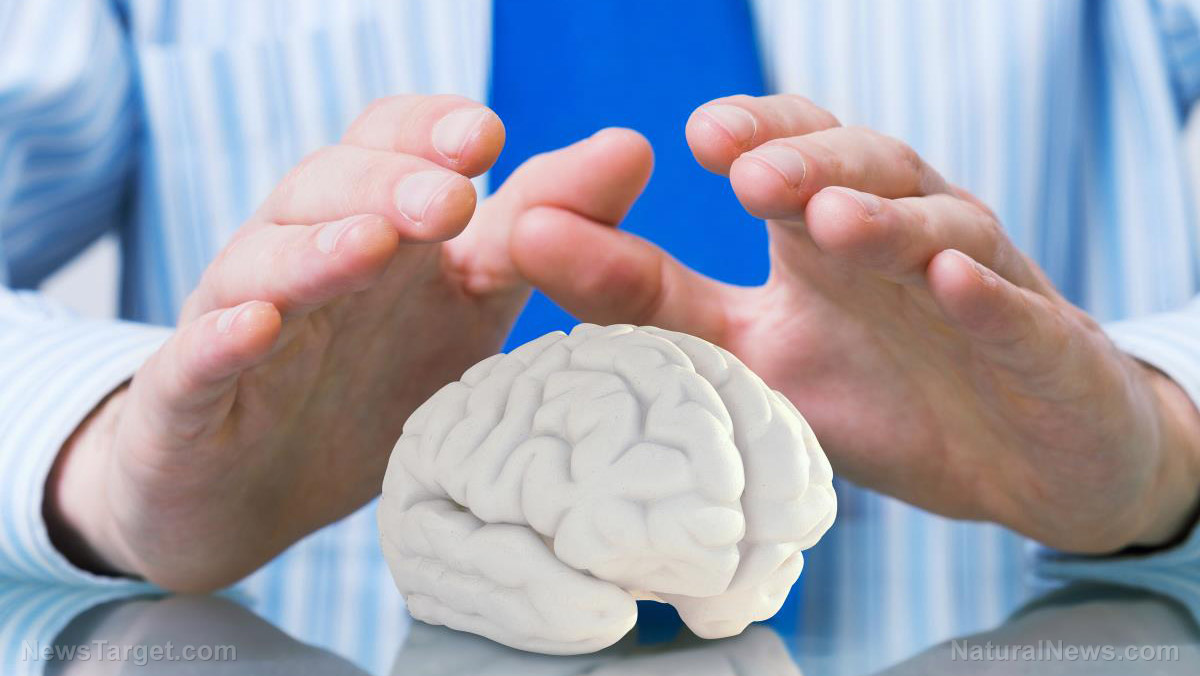Mitochondria and autism: Science unlocks the power within cells for new breakthrough treatments
06/18/2025 / By Olivia Cook

- Mitochondrial dysfunction is common in autism and may contribute to developmental and behavioral symptoms.
- Natural interventions like dietary supplements, plant-based compounds and probiotics offer reliable support for mitochondrial and brain health.
- Gut health plays a crucial role in mitochondrial function, emphasizing the importance of a targeted diet in ASD management.
- Phytotherapeutics, such as resveratrol and green tea extract, are emerging as potential complementary therapies for autism.
- Gene therapy remains controversial due to ethical, safety and long-term risk concerns, making natural treatments a more immediate and practical focus.
- Personalized treatments: Given the heterogeneity of ASD, targeting specific mitochondrial dysfunctions could be the future. Researchers are working toward customized therapies targeting genetic, mitochondrial and gut-related factors to improve autism treatment outcomes.
Autism spectrum disorder (ASD) affects millions worldwide, yet its causes and treatments remain complex and challenging. However, groundbreaking scientific discoveries are changing the way autism is understood and approached. A recent study published in Current Neuropharmacology explores how targeting mitochondria – the tiny powerhouses within cells – may hold the key to unlocking new treatment possibilities.
Autism is a neurodevelopmental disorder characterized by challenges in communication, repetitive behaviors and social interaction. While its exact causes remain elusive, researchers are increasingly focusing on the mitochondria as a crucial factor in the condition.
Mitochondria generate energy for cells, regulate metabolism and influence the immune system. Emerging evidence suggests that mitochondrial dysfunction plays a significant role in ASD, with up to 80 percent of children with autism showing some form of mitochondrial impairment compared to the general population.
Why do mitochondria matter for brain health? Mitochondria function as cellular power plants, producing adenosine triphosphate (ATP), the fuel necessary for brain activity. When mitochondria malfunction, several issues arise:
- Energy crisis or deficits: Neurons struggle to produce enough ATP, affecting their ability to communicate and function efficiently.
- Oxidative stress: Damaged mitochondria generate excessive reactive oxygen species (ROS), leading to oxidative stress that can harm brain cells.
- Calcium imbalance: Mitochondria regulate calcium levels which is crucial for nerve signaling. Disruptions can contribute to abnormal brain activity seen in ASD.
Multiple studies reinforce the connection between mitochondrial dysfunction and autism.
- Brain tissue studies: Postmortem analysis of ASD patients reveals decreased mitochondrial enzyme activity and increased oxidative stress.
- Blood and muscle tests: Many children with autism exhibit elevated lactate and other mitochondrial dysfunction markers in their blood and muscle tissue.
- Genetic links: Mutations in mitochondrial DNA (mtDNA) and nuclear DNA (nDNA) have been associated with ASD, pointing to inherited and spontaneous genetic variations affecting mitochondrial health.
Natural strategies to support mitochondrial health
While no cure exists for autism, boosting and improving mitochondrial function offers promising therapeutic possibilities. Natural and dietary interventions can help optimize mitochondrial health and alleviate some ASD symptoms.
Co-factor supplementation
Well-documented by researchers from different parts of the world, co-factor supplements are essential nutrients that support mitochondrial function by aiding in energy production, enhancing cellular metabolism and reducing oxidative stress.
- L-carnitine assists in transporting fatty acids into mitochondria for energy production. Studies suggest it may improve behavior and cognitive function in some children with ASD.
- B vitamins are essential for mitochondrial metabolism. Aside from vitamins B1 (thiamine), B2 (riboflavin) and B3 (niacin), which have shown potential in supporting energy production and neurological health, folinic acid, an active form of folate (B9) is also gaining traction. Emerging research suggests that folinic acid can significantly improve communication, repetitive behaviors and social function in children with ASD. It represents a safe, effective, affordable and easily accessible treatment – one that could be life-changing, particularly for those with folate metabolism dysfunction.
Dietary approaches
The high-fat, low-carbohydrate ketogenic diet and its milder form, the Modified Atkins Diet (MAD), have been shown to enhance mitochondrial energy production and reduce oxidative stress. (Related: Three major ways to improve mitochondrial function.)
The gut-mitochondria connection
Nurturing gut microbiota, which plays a key role in mitochondrial function, offers a new way to support brain health and improve the lives of those with autism. Gut microbes have been shown to influence emotions, behavior and even brain development.
- Butyrate, a short-chain fatty acid produced by gut bacteria, enhances mitochondrial function and plays a role in serotonin and melatonin production – both critical in ASD regulation.
- Polyphenols (found in berries and tea) and carotenoids (from carrots and tomatoes) act as antioxidants, protecting mitochondria from damage.
- Probiotic and prebiotic-rich foods, such as fiber-rich vegetables, sauerkraut and yogurt, support gut health, indirectly enhancing mitochondrial function.
Phytotherapeutics
For centuries, traditional medicine has relied on plant-based compounds to treat neurological disorders. Recent studies have identified several nutraceuticals that show promise in managing ASD symptoms with fewer side effects than conventional pharmaceuticals.
- Resveratrol, a polyphenol found in grapes, has been shown to protect mitochondria and improve behavioral symptoms in ASD models.
- Green tea extract, which is rich in antioxidants, has demonstrated benefits in animal models by improving cognitive function and reducing oxidative stress.
- Piperine, a compound found in black pepper, is currently being tested in clinical trials for its potential to alleviate ASD-related behaviors by modulating brain function.
Phytotherapeutics offer a complementary approach that could be used alongside other therapies and treatments to enhance overall well-being in individuals with ASD.
Gene therapy: The controversial approach to autism treatment
Scientists have categorized ASD as a disorder with a strong genetic basis, leading to interest in gene therapy. However, ethical and safety concerns about its use in humans remain.
- Non-permanent gene regulation: Methods, such as antisence oligonucleotides (ASOs), RNA interference (RNAi) and small activating RNAs (saRNAs) aim to temporarily regulate gene expression without permanently altering DNA.
- Permanent gene editing: CRISPR-Cas9 and other genome-editing technologies attempt to correct faulty genes by permanently modifying DNA. While promising, these approaches come with concerns regarding unforeseen genetic consequences and long-term risks. (Related: CRISPR gene editing found to cause hundreds of “unintended mutations,” warn scientists.)
Given the complexity of ASD and its diverse genetic factors, gene therapy remains an experimental and controversial avenue, requiring further ethical and clinical evaluation.
Brain.news has more stories about autism and alternative treatments.
Watch this video that talks about mitochondrial dysfunction in autism spectrum disorders.
This video is from the Daily Videos channel on Brighteon.com.
More related stories:
The role of mercury in autism: A deep dive into the cellular evidence.
Study unlocks the power of food: How diet can influence Autism Spectrum Disorder (ASD).
Sources include:
Submit a correction >>
Tagged Under:
#nutrition, alternative medicine, Autism spectrum disorder, brain damaged, brain function, brain health, diet, food is medicine, gene therapy, health science, Mind, mitochondria, MItochondrial Dysfunction, natural cures, natural health, natural medicine, Naturopathy, nutrients, parent education, personalized treatments, phytonutrients, supplements
This article may contain statements that reflect the opinion of the author
RECENT NEWS & ARTICLES
COPYRIGHT © 2017 NATURAL MEDICINE NEWS




















